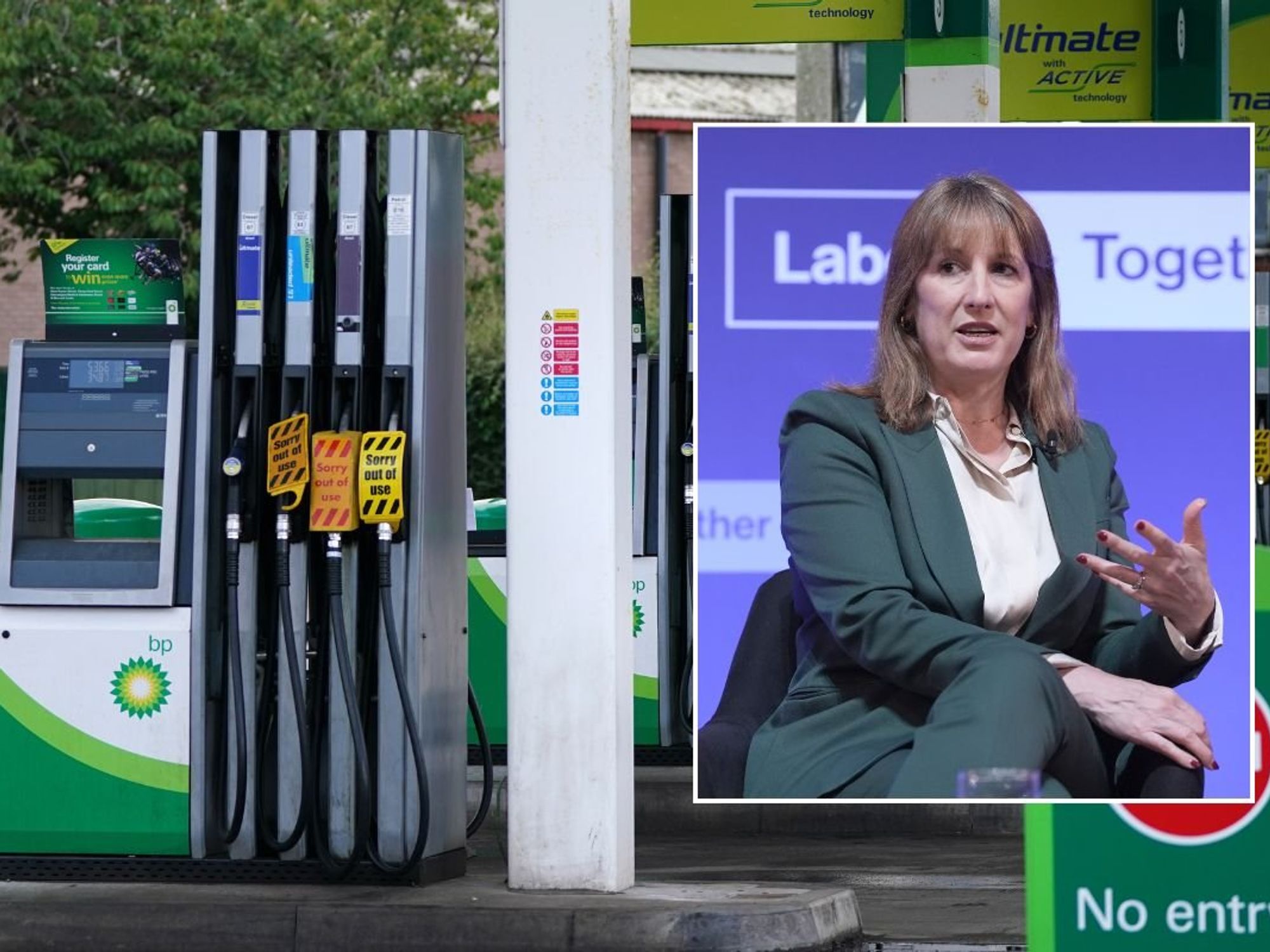Couples heartbroken as 'love locks' to be removed on bridge with 'slavery links' because they are a 'symbol of oppression'
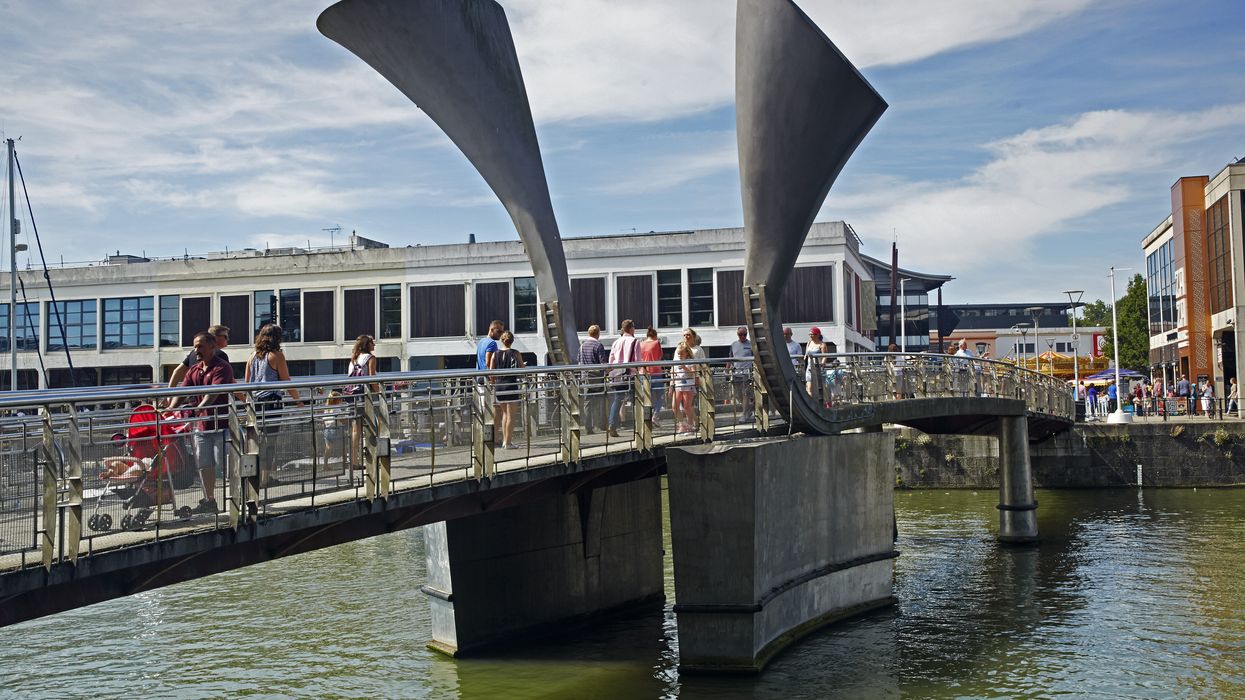
Horned sculptures and people crossing along Pero's footbridge on the redeveloped waterfront of Bristol's Millennium square
|GETTY

Pero Jones was an enslaved African purchased by plantation owner John Pinney in 1765 at the age of 12
Don't Miss
Most Read
Latest
Activists have launched a campaign to remove lovelocks from a Bristol bridge after claiming the arch has links to slavery.
Couples covered Pero's Bridge, which was named after an eighteenth-century slave, with romantic padlocks since its construction in 1999.
Lovelocks have never technically been permitted but Bristol City Council never enforced the ban.
Padlocks have instead been removed every couple of years.
WATCH NOW: Just Stop Oil activists at the University of Bristol
However, Bristol resident Helen Tierney claimed Pero was never granted his freedom and argued the "hideous" lovelocks dishonour his memory.
She wrote: "To Marvin Rees, Mayor of Bristol. In the heart of Bristol is a pedestrian bridge crossing the harbour.
"The City Council agreed the name Pero's Bridge to honour a young enslaved African, Pero Jones, who in the 18th century was sold into slavery aged 12 & brought by his 'owner' to live in Bristol.
"Pero was never granted his freedom & died enslaved. A tiny plaque by the bridge tells this story.
"Pero's Bridge is now defaced with thousands of padlocks, so called 'lovelocks' locked on to its structure.
LATEST DEVELOPMENTS: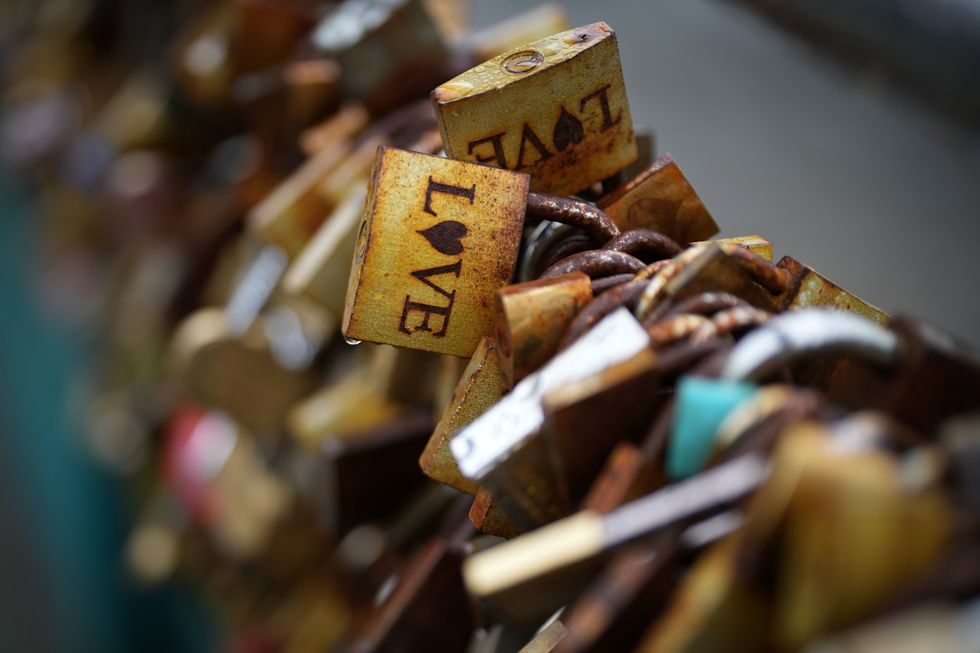
An image of love locks
|GETTY
"The keys most likely dropped into the water below.
"Only a few steps from the bridge is the place where, in 2020, the statue of slave trader Edward Colston was thrown into the harbour.
"I call upon the Mayor & City Councillors of Bristol to remove these hideous padlocks, not symbols of love at all but of oppression down the centuries, of enslaved people chained & padlocked with the keys thrown away, those people disrespected still today in the very place where they should be honoured."
Pero Jones was an enslaved African purchased by plantation owner John Pinney in 1765 at the age of 12.
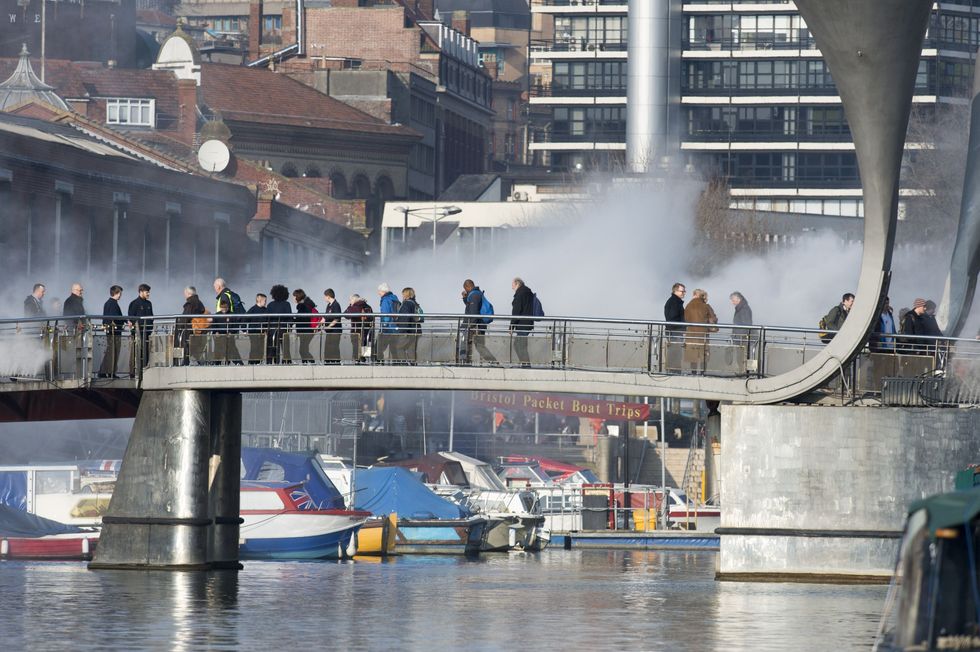
Japanese artist Fujiko Nakaya creates a fog bridge across Bristol harbourside to celebrate the city's status as European Green Capital
|PA
He joined the Pinney family in Bristol in 1784 when the sugar merchant relocated from Nevis to the West Country.
In its description of Pero's Bridge, Visit Bristol said: "Pero's Bridge is a popular meeting point and an integral part of the Harbourside, linking the bars, restaurants and attractions that surround Millennium Square, including the Bristol Aquarium and We The Curious, to the cobbles and leafy sanctuary of the Old City, home to the contemporary arts centre Arnolfini and the tranquil Queen Square."
The pedestrian bridge, erected to commemorate Pero, links Queen Square and Millennium Square.
It also sits meters from the site of a controversial Black Lives Matter protest in 2020.
Black Lives Matter activists in Bristol hit the headlines after throwing a statue of slave trader Edward Colston into the city harbour.
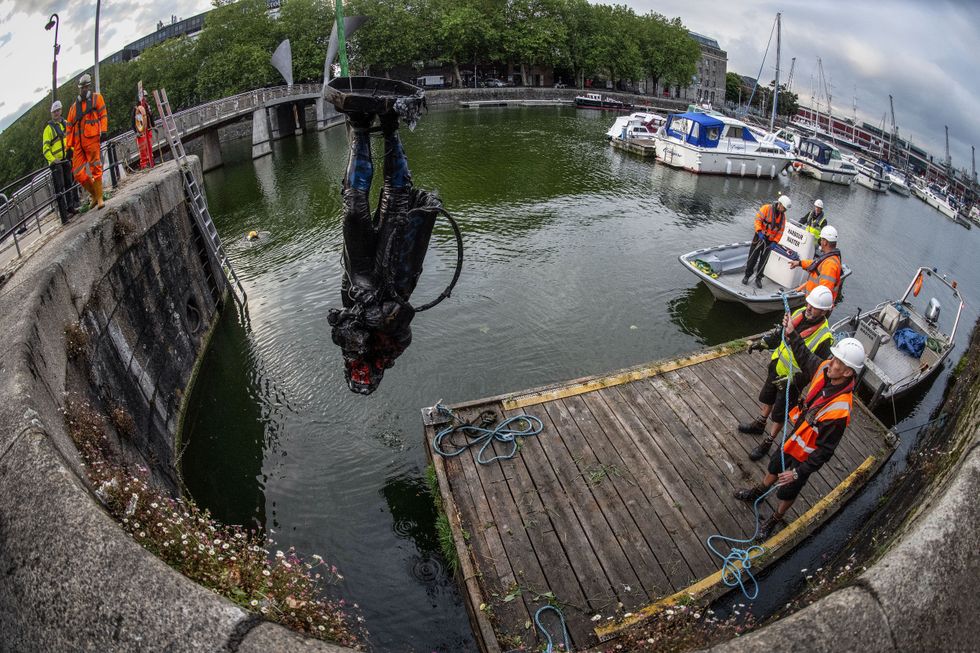
The statue of slave trader Edward Colston is retrieved from Bristol Harbour by a salvage team on June 11, 2020
|GETTY
The statue was later recovered and exhibited from June 4 to September 5, 2021, at the M Shed Museum in Bristol.
An activist who helped mastermind the statue-toppling protest was jailed for fraud in October.
Xahra Saleem, from Romford in London, spent more than £30,000 in donations earmarked for charity to fund her lifestyle.
Saleem, who was jailed for two-and-a-half years, admitted fraud following a police investigation into a GoFundMe page called 'BristBLM' set up before the protest.
The BLM organiser received £32,344 in donations raised from 558 individual contributions.
Bristol Crown Court heard the 23-year-old even splurged nearly £6,000 on Uber rides.









